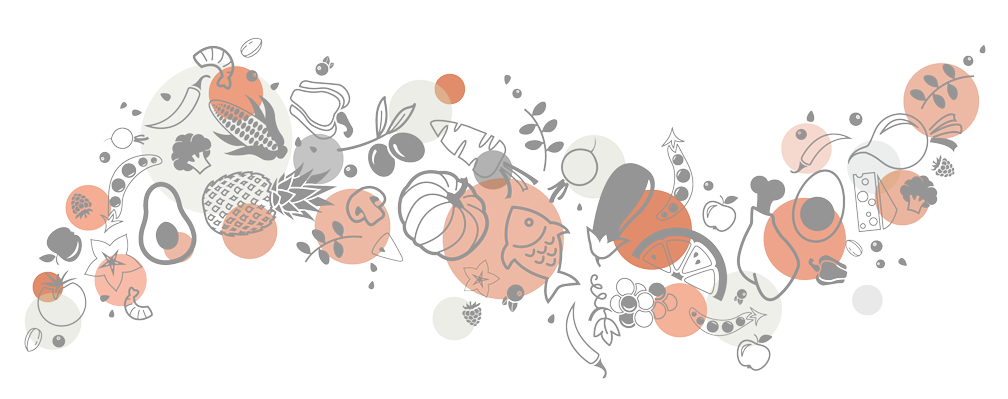
Panel discussion on...
Current Developments in Food Industry and -technology
Katrin Hedvall
Head of Food Sweden AFRY

Member of AgroFOOD Industry Hi Tech's Scientific Advisory Board

In this Panel Discussion, several prominent companies within the food and nutraceutical ingredient industry have been invited to discuss about drivers and barriers of healthy lifestyle, focusing on global and regional consumer trends, scientific achievements, emerging delivery formats, use of AI technologies and the implementation of the United Nations sustainability goals.
Don’t Fear the Future – Feed It
Less to produce more – that is the future winner!
Over the next decade, the food industry will be shaped by major technological and societal transformations aimed at creating sustainable, nutritious, and resilient systems. We know that climate change, the energy crisis, and resource shortage signal the end of the age of abundance. For the food industry, this marks a significant shift—towards a resource-efficient, technology-driven food system where the winners are those who can produce more with less. Key developments in biotechnology, automation, and data-driven planning are paving the way for how food is grown, processed, and consumed globally.
Biotech – An Ancient Method Unlocking the Future of Food
Biotechnology, long rooted in traditional food processes like fermentation, is now emerging as a key to solving some of today’s most pressing food production challenges. By turning waste and side streams into valuable resources, reducing water usage, and enabling the development of climate-resilient crops, biotech offers powerful tools to build a more sustainable, efficient, and secure food system. What was once ancient wisdom is now driving modern innovation – and helping us feed the future.
But to fully realise its potential, we must also shift consumer perception. Biotechnology can seem unfamiliar or even threatening, despite being a quite natural part of our everyday lives. Building consumer trust is essential – and producers play a key role. Healthier choices, like reducing salt, often can’t be communicated openly due to how products are perceived.
Yet with the right storytelling and presentation, change is possible. Just look at how porridge became a star on the Nobel Banquet menu – a simple dish turned into a trend through creativity and confidence. The food revolution to a diet good for us, good for the planet and with a good taste has been launched!
Rethinking Processing: How Smart Techniques Can Unlock Nutrition and Support a Sustainable Food Future
The health effects of ultra-processed foods vary greatly—it all comes down to the methods and ingredients used. Some may negatively impact health, while others enhance shelf life, ensure food safety, and even boost nutritional content. The term “ultra-processed” often oversimplifies a diverse category of foods, where the real issue lies not in the level of processing itself, but in the specific techniques and ingredients used. To truly understand their role in our diets, we need to look beyond the label and assess the process behind the product.
Sustainable diets must also ensure nutritional adequacy. One well-known challenge in plant-based diets is the low absorption of essential minerals like iron and zinc, often hindered by phytic acid—a natural compound found in grains and legumes. Innovative food tech companies are now working to reduce phytic acid levels in staple grains through revival of ancient practices such as fermentation, germination, and malting. One example. The Swedish company Good Grains has developed a proprietary method that unlocks these minerals in wheat, barley, and rye—boosting their bioavailability and helping close the nutrition gap without compromising climate goals. So innovative processing techniques can help develop affordable, nutrient-dense, and climate-smart foods. Instead of demonizing processing, the focus should be on how and why we process—and ensuring that these technologies support both human and planetary health. A success worthy of the finest tables!
Innovative Production Systems for a Challenging Future
As climate change disrupts weather patterns and natural resources grow scarce, our traditional ways of producing food are under pressure. At the same time, overfishing and soil depletion from intensive farming continue to strain the planet.
To meet these challenges, we need a smarter, more resilient system, one that protects nature while still delivering the familiar foods we love. By rethinking how we grow and harvest, we can keep traditional diets alive and produce them in new, sustainable ways that work with the planet, not against it.
One promising technique is vertical farming, where crops are grown indoors under carefully controlled conditions. With the right concept and method this way of farming uses much less water and land, avoids high dependence on weather, and allows fresh food to be grown closer to where people live, cutting down on a lot of food transports. It means reimagining food production - not in sunlit greenhouses by the Mediterranean, but in advanced, high-tech systems with controlled environments that can function in surprising locations, such as repurposed mines up in the northern parts of Europe.
Another key innovation is land-based fish farming using RAS (Recirculating Aquaculture Systems). These closed-loop systems clean and reuse water, providing healthy conditions for fish without harming the environment. Unlike traditional fish farming or wild fishing, land based fish farming gives an opportunity to produce high-quality seafood with minimal impact on oceans and freshwater ecosystems.
These technologies can also be integrated. By combining vertical farming and land-based fish farming in industrial symbiosis, waste from one system (like nutrient-rich water from fish tanks) can nourish the other. This creates a closed-loop, resource-efficient model of food production that reduces waste, lowers environmental impact, and brings us closer to a truly sustainable food system. It’s a smart way forward!
We need to go big!
All these high impact innovations need to move from research and pilot stages to full-scale production, and to manage - collaboration becomes key. Technical expertise in scaling up processes, facility design, and food safety regulations ensures that promising ideas can translate into practical, reliable solutions. Supporting such scale-ups demands multidisciplinary teams with knowledge across engineering, automation, project management and food safety to expand the sustainable food production.
We have a vital responsibility to future generations: to lead a collective shift toward food that not only nourishes us and delights our palates but also supports the health of our planet. We need to accelerate the transition towards a sustainable future!
Panelists
References and notes
- Arenas-Jal M, Suñé-Negre JM, Pérez-Lozano P, García-Montoya E. Trends in the food and sports nutrition industry: A review. Critical Reviews in Food Science and Nutrition. 2020;60(14):2405-21.
- Angus A. Top 10 Global Consumer Trends for 2018: Emerging Forces Shaping Consumer Behaviour: Euromonitor International; 2018 (Available from: https://tourismaccommodation.com.au/wp-content/uploads/2018/03/Top10-Global-consumer-trends-for2018.pdf.
- Labrecque LavdE, Jonas and Mathwick, Charla and Novak, Thomas and Hofacker, Charles. Consumer Power: Evolution in the Digital Age. Journal of Interactive Marketing 2013;27.
- Dunford M. Fundamentals of Sport and Exercise Nutrition 2010.
- Galaz GA. Chapter 20 - An Overview on the History of Sports Nutrition Beverages. In: Bagchi D, Nair S, Sen CK, editors. Nutrition and Enhanced Sports Performance. San Diego: Academic Press; 2013. p. 205-10.
- Bird SP. Creatine supplementation and exercise performance: a brief review. J Sports Sci Med. 2003;2(4):123-32.
- Schofield L. Vitamin Retailer The Dietary Supplement Industry Leading Magazine 2022 (Available from: https://vitaminretailer.com/activating-your-fitness-nutrition-department/.
- Newman JI, Xue H, Watanabe NM, Yan G, McLeod CM. Gaming Gone Viral: An Analysis of the Emerging Esports Narrative Economy. Communication & Sport. 2020:2167479520961036.
- Tartar JL, Kalman D, Hewlings S. A Prospective Study Evaluating the Effects of a Nutritional Supplement Intervention on Cognition, Mood States, and Mental Performance in Video Gamers. Nutrients. 2019;11(10).










